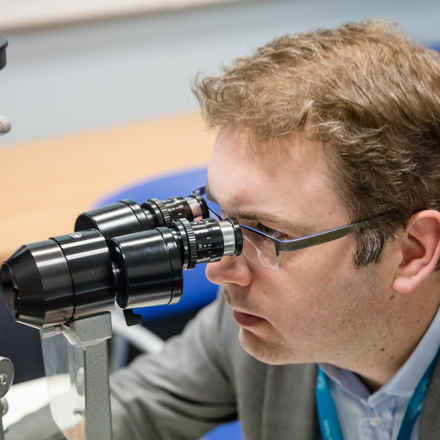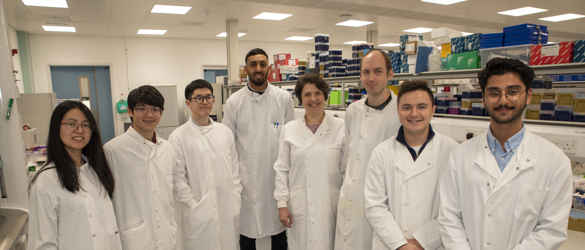Using Artificial Intelligence to predict AMD progression

Pearse Keane, UCL and Moorfields Eye Hospital - £126,462
September 2019 – April 2022
This project aims to use the power of computers and artificial intelligence (AI) to better understand age-related macular degeneration (AMD). Using eye scans from patients with wet AMD, the researchers want to better understand why and how AMD develops and what causes the progression of wet AMD.
What’s the problem?
AMD can progress at different rates and it’s often difficult to predict how a person’s vision may change over time. People with wet AMD in one eye are also more at risk of developing wet AMD in the other eye. But again, we can’t yet predict who is at higher risk of getting wet AMD in the other eye. If we can understand what changes are involved in the progression of wet AMD, we can better monitor and manage patients.
What did the project achieve?
This project created an AI algorithm to divide wet AMD patients based on features found in eye scans called optical coherence tomography (OCT) scans. Through this project they were able to understand more about how different features may lead to different responses to wet AMD treatments called anti-VEGF therapy. They also found some features seen at the beginning of treatment may be able to predict future progression.
What’s next?
The researchers made all of their results of the AI algorithm available to the research community. By sharing the anonymised outputs, researchers are able to continue to develop this work and improve the algorithm with more data to fine-tune it further.
Publications
Quantitative Analysis of OCT for Neovascular Age-Related Macular Degeneration Using Deep Learning Gabriella Moraes, Dun Jack Fu, Marc Wilson, Hagar Khalid, Siegfried K Wagner, Edward Korot, Daniel Ferraz, Livia Faes, Christopher J Kelly, Terry Spitz, Praveen J Patel, Konstantinos Balaskas, Tiarnan D L Keenan, Pearse A Keane, Reena Chopra Ophthalmology 2021 May;128(5):693-705.
Predicting Incremental and Future Visual Change in Neovascular Age-Related Macular Degeneration Using Deep Learning Dun Jack Fu, Livia Faes, Siegfried K Wagner, Gabriella Moraes, Reena Chopra, Praveen J Patel, Konstantinos Balaskas, Tiarnan D L Keenan, Lucas M Bachmann, Pearse A Keane Ophthalmology Retina 2021 Nov;5(11):1074-1084
See our other projects
Since 1987 the Macular Society has invested around £10 million in over 100 research projects.
Explore more research
Beating macular disease through funding medical research and improving the lives of those living with macular disease.
Get the latest research news from the Macular Society
To hear about life-changing research and treatments, subscribe to our monthly enewsletter today. Together we can Beat Macular Disease.
Sign up to our free email newsletter



